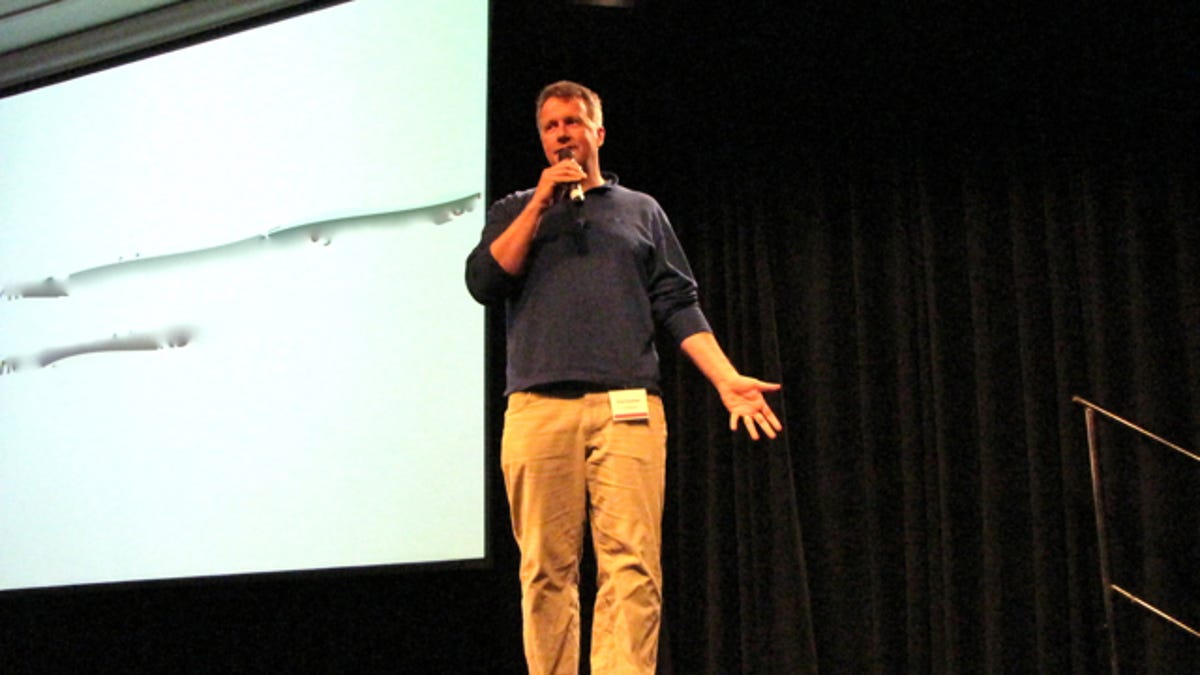Y Combinator founder: Startup funding could get scarce
Paul Graham warned that Facebook's tepid post-IPO performance could depress funding levels. He adds that life is now harder for VCs, who have to pick winners from a much bigger pool of startups.

MOUNTAIN VIEW, Calif. -- The future for startup funding is "getting more unpredictable."
That's what Y Combinator founder Paul Graham said today, theorizing that because there are so many more young companies getting off the ground these days, venture capitalists may well have a much harder time predicting winners than in the past.
It makes sense. Startups can get going today for as little as a few hundred thousand dollars, so there are many more of them. "But the funnel at the top is the same," Graham said during the Y Combinator Demo Day. "There's more entrants, but just as few finishers."
It's not clear if this is really a problem for Silicon Valley and the rest of the tech world. But Graham thinks that VCs are spreading themselves thinner as more and more startups come along with business plans that seem promising enough to merit angel funding.
So while a large number of companies may find themselves getting low six-figure checks from Sand Hill Road, relatively few of them may make it as far as a B round in the future -- a dynamic that could become more pronounced as VCs toughen up on the standards they use to determine when to write mid-seven-figure checks.
Graham said that in his view, venture funds are changing their strategies to focus more on early-stage funding, because such bets are relatively cheap. But then they're increasingly harsh as they determine who will get B round funding later on. "If I was a VC, I'd be easier on the seed round," Graham said, "and harsher on the B round. If a company hasn't gotten its s--t together by the B round, it probably won't."
Facebook IPO impact unclear
In early June, Graham made some waves by writing an email to Y Combinator portfolio companies in which he worried that Facebook's poor IPO might hurt startup funding. Graham wrote at the time that:
[T]he startups that really get hosed are going to be the ones that have easy money built into the structure of their company: the ones that raise a lot on easy terms, and are then led thereby to spend a lot, and to pay little attention to profitability.... That kind of startup gets destroyed when markets tighten up. So don't be that startup. If you've raised a lot, don't spend it; not merely for the obvious reason that you'll run out faster, but because it will turn you into the wrong sort of company to thrive in bad times.
Now, more than two months after the Facebook IPO, and with the social networking giant's stock down by about half, you'd naturally expect Graham's pessimism to have deepened. But at Demo Day, he said he really wasn't sure what would happen. He said he hasn't yet seen any actual negative effects related to the Facebook IPO, though he added that it may be too early to tell.
In about two weeks, he pointed out, the graduating 74 companies from the summer Y Combinator class will be deep into fund raising, and only then will it be clear whether VCs are willing to put their money into the kinds of startups coming out of what is generally regarded as the most important tech incubator in the world.
On the other hand, Graham added, there were no shortage of VCs wanting to come to Demo Day today and see what the 74 companies showcasing their wares had to offer. If anything, he said, there were more than in the past.
Ultimately, Graham said startups probably won't be impacted overmuch by the Facebook IPO, at least in angel rounds. But they could face a money crunch later, he suggested, as VCs continue to deal with the flood of angel-funded startups seeking seven-figure rounds of funding.
And is Y Combinator itself -- which graduates more than 150 startups a year -- partially responsible for the flood of such companies that will be targeting VCs in the months and years ahead? "Yeah," said Graham, "but it would have happened anyway. We didn't create this wave, we're just riding it [and] maybe accelerating it a little bit."

